Feudal Globalism:
Coming from feudalism perhaps we’ll return to it
Interesting, if perhaps overwrought piece from Mark Shiffman. It points out the way in which nation states rose from pre-modern warlordism and how that might be a more reliable guide to our intuition in thinking about our destiny as we appear to be declining into a new cold war. And a world in which warlord elites how operate across international borders.
[I]n the US, Shivshankar Menon, a former National Security Adviser to Indian Prime Minister Manmohan Singh, recently observed that large a part of the “foreign policy establishment… has embarked on an ideological quest to divide the world between democracies and autocracies”. This is certainly how the Biden administration frames the stakes of its opposition to Russia in Ukraine.
This belief rests on the assumption that we are engaged in a struggle over what kind of nation states will shape world politics. But if this 400-year-old premise is really what is at issue, then something structurally deeper than democracy is at stake — namely, the question of whether world politics will operate according to nation-state logic or feudal logic. …
In feudal globalisation, … sub-state actors serve as lesser vassals to the lords who, in the classic formulation by Max Weber, maintain a monopoly on the permissible use of violent force within their defined territories. In Blecua and Ollivant’s words, sub-state actors’ “capacity to mobilise support among local constituencies gives them some sort of legitimacy, and their control over the use of force in a certain territory provides a quasi-state character to them”.
In Syria, for example, “Iran and Russia finance their proxies directly without going through the Syrian Government, and thus exert real control over military operations. This means that Assad finds himself in the uncomfortable position of being a vassal sovereign in a land ruled by armed bands of uncertain allegiances.” Similarly, the militias that Russia has supported in the Donbas region of Ukraine for nearly a decade have prepared the ground for the recent “referenda” held there.
Size matters
Age shall weary them
A fine piece of writing capturing two very different perspectives on America’s decline into old age in our private and public lives by Andrew Sullivan.
I have seen the future and I do not want it. … Maybe it’s visiting my 87-year-old mother in the nursing home she finally had to resort to, but the ravages of old age, once ended by death in your seventies or earlier, terrify me. You walk past room after room and see the empty stares into space, the slumped husks of bodies propped up in bed, and the frail wanderers who know neither who they are nor where they are going. …
And my own mother, with whom I have been closer than anyone on earth, whose intense, abiding love has long been a still, white-hot thread connecting every part of my own life, is now drifting away in her final home, dementia gradually robbing her of memory, and of coherence. She seems happier, actually, than I can ever remember her, which isn’t saying a huge amount, but it’s definitely better than the agonies she once endured with bipolar disorder. But how do I really know?
An ocean away, I find it almost impossible to talk to her on the phone anymore, because it rips me up, as she resorts to repeated pleasantries because she can no longer muster much else. I can’t get through anymore — to the essence of her. … When I’m there, in her room, our bodies can comfort each other; so far away, the grief just kind of swallows me up.
And then a change of scene:
Chuck Grassley is also 89 and just won his eighth term in the Senate. Does he think he’s Methuselah? Bernie Sanders is 81, and there’s some buzz that he might run in 2024 if Biden doesn’t. Then we have Senate Minority Leader Mitch McConnell, 81, who just had his second fall, like many other octogenarians, and has also been out for a month. Feinstein has been in the Senate for over three decades. McConnell has had his Kentucky seat even longer, since 1985.
Thirty-four senators are now 70 or older — well past retirement age in all advanced countries. It’s the second-oldest Senate since 1789. It’s not a flaw to admit your age and quit after a good innings, with your faculties still intact. Even the last Pope did it. Nancy Pelosi resisted forever, but finally put down her gavel at the age of 82, saying, “For me the hour has come for a new generation to lead the Democratic caucus that I so deeply respect.” Not so hard, eh?
You can probably guess what’s coming. It is a mark of total dysfunction that a young country will probably be forced to pick between two octogenarians for president next time around (Trump would hit 80 during his second year in office). The oldest age of a president before Biden was Reagan — 77 when he left office. A recent poll found that 68 percent of registered voters — and almost half of Democrats — feel that Biden is “too old for another term.”
HT: Cousin Ren.
And just watching it on YouTube, brought up another in the genre.

Groupthink: the eternal struggle
Nice to have groupthink in the news. Naturally right thinking people everywhere and economists in particular are all shocked, SHOCKED, that groupthink has been going on at Australia’s central bank!
How long has this been going on I hear you ask?

A provocation
Onlookers from the economics fraternity remain unimpressed.

Bureaucracy as oppression: the case of out of home care
Poverty used to be the principal vector of oppression, but increasingly bureaucracy is integral to the story as anyone who's watched I, Daniel Blake will realise. Or way back in the 19th-century in Australia, at the Indigenous reserve at Corranderrk in Victoria as you can see here. In any event, it's alive and well in the care of kids who've had to be removed from their parents because of abuse and neglect. If you prefer to listen to the audio, you'll find it here.
The beauty of Ukraine
Sumptuous pictures taken before the invasion. From the NYT book review.
In February 2022, the editorial staff at C.P. Publishing in Kyiv was hard at work on THE BEAUTY OF UKRAINE (TENEUES, $70), a book of landscape photography by the Odesa-born Yevhen Samuchenko, when Russian forces invaded the Ukrainian capital and forced them to flee.
Although the book survived, much of the breathtaking natural world it captures has not.
The moral of this story is that if you get a choice between savouring beautiful things and maiming and killing people en masse you should definitely pick the first choice. It is almost always wrong to maim and kill people. And even worse to do it en masse. If anything about this is unclear, please let me know.
Vale John Kerin
I was saddened to hear of the death of John Kerin — who was a subscriber to this newsletter. He responded to the newsletter I sent out on 31st August last year by sending me an email which read “Great collection in this lot, thanks, John Kerin”. He was sacked as Treasurer for his reticence to bullshit when he was asked when the recession would end. “Your guess is as good as mine”. And the press were shocked, SHOCKED I tell you that he didn’t better conceal his inability to rattle off what GOS stood for. “Gross Operating Surplus”. I didn’t know him well but I do recall how egalitarian things were when I started as a staffer in John Button’s office in 1981. Staffers and shadow ministers just mucked in together. In any event, John Menadue’s Pearls and Irritations contains reflections from Barry Jones drawing on Rod Cavalier’s recollections also.
A legendary hypnotiser of chooks – and a gleeful collaborator in a literary hoax. You had to love a bloke like that. And I did.
Farewell Father Bob
Bill Bensley: Architect
Bill Bensley’s career as an architect began with a realization after he finished his postgrad at Harvard in 1984. He could landscape parking lots for the rest of his life, or he could get out of the country. Bensley chose to head west until he reached Bali. There, he was able to “able to draw something and then have 600 guys carve it out of stone.” It put him on the path to becoming one of the most recognized names in architecture across Asia.
Through extensive collaborations with colleagues like his mentor, Lek Mathar Bunnag, Bensley mastered his craft by rigorously developing his skills and becoming fluent in interaction with local cultures. He eventually matured into a style characterized by a fidelity to vernacular architectural forms and a vital, maximalist opulence.
Is misogyny wot dun it?
Removed three women heads of state that is?
Not according to Guy Rundle:
The trouble with these explanations is that all three of these women are professional politicians and political lifers in tough, professional, factionalised parties. They’ve risen to the top in a context where you’ve got to be not so much thick-skinned as scar-tissued (Gough Whitlam’s description) to even have a chance at such. And in the latter two cases, there were very good reasons why they quit, and these had nothing to do with online abuse or wider misogyny.
Sturgeon quit, saying she had given her all, nothing left, etc, even though she had been flying and forceful months earlier. What had got her was an encroaching scandal around Scottish National Party (SNP) fundraising (her husband, an SNP heavy, was arrested on charges last week), which followed on from a messy stuff-up. Sturgeon had passionately championed a pro-gender-self-definition bill, which passed in the assembly but had divided the SNP and Scotland.
But then the Sturgeon government was confronted with the Isla Bryson case. Bryson had been charged with raping two women — one in 2016 and one in 2019 — when known as Adam Graham prior to her transition to being a transgender woman, which she identified as by the time of conviction in 2023. Bryson had been on remand in a women’s prison, but was moved pretty quickly to a male prison after conviction. The rapid action left Sturgeon looking foolish and hypocritical and weakened her defence against the corruption scandal. Her support within the party disappeared, and she was gone.
Something similar happened to Ardern. In late 2022, she was saying she wasn’t going anywhere. In 2023, she was gone. What had happened in the interim? Christmas had happened, and the inner party had time to look at the numbers — which were not great for Labour, even worse for its leftish program, and terrible for Ardern. The likely explanation is that her faction decided she had to go, and, a good team player — and a possible repeat future prime minister — she went. Her deputy, a factional ally, replaced her, the leftish program was largely dumped when she was, and Labour is now back in the game in NZ.
So the chorus of claims that misogyny had destroyed these women didn’t ring true.
In case you can’t believe your lying eyes
People are frothing at the mouth that we now have proof that there’s a yawning gap between what the News Limited and Trump camps tell us behind closed doors and what they put on show. That’s been obvious to anyone with eyes to see for a long time, but in case you like watching people whom you know are guilty being caught with their pants down. Anyway, in a few weeks it will all have been taken on board by our systems and our gob will revert to its natural (unsmacked) state, our gast to its corresponding state (of unflabberment).
Nazi Schmazi
A writeup of Martin “strength through joy” Heidegger in the light of recently unredacted correspondence. The key concept for me is “revolutionary obscurantism”!
Wolin removes the veil of “greatness” that has insulated the philosopher from historically-informed criticism. Once that veil is lifted, we see clearly how many of Heidegger’s celebrated positions – including his fascinations with the preSocratic Greeks and the German poet, Hölderlin – were not the products of his solitary, apolitical genius.
They reflect his immersion in what novelist Thomas Mann called the “revolutionary obscurantism” informing Nazism. This obscurantism hailed from Völkisch forms of German romanticism going back over a century before 1933. The Völkisch authors, mostly unread outside of Germany, expressed deep anxieties about modernisation and proud claims to German uniqueness. They also often harboured deep anti-semitic prejudices.
Heidegger’s Nazi-era speeches and lectures show a figure enthusiastically caught up in the propaganda and initiatives of the totalitarian regime.
He ruminates in philosophy classes on “Joy in Work (Arbeitsfreudigkeit)”, offering what Wolin calls a “discursive embellishment” to Nazism’s “strength through joy” programs. He philosophises in an advanced seminar about the Germans’ supposed right “to strike out into wider expanses”, giving philosophical support to Hitler’s planned expansion east, and military destruction of the international order created by the Treaty of Versailles.
Wolin’s book shows how Heidegger was far from resisting Nazism in any way. Rather, he was engaged in a struggle for influence within the regime, claiming to be able to teach others about the “inner truth and greatness” of the Nazi “movement”. Heidegger wanted to be the philosopher whose ideas could “lead the leaders”. …
Heidegger’s scheduling of his posthumous publications reflected his clear wish to finally get the whole truth out, concerning his political beliefs.
And alarmingly, the publication of his Nazi-era materials has coincided with Heidegger emerging as a far-right inspiration to ethno-nationalist radicals. In Russia, Germany, Austria, France, and the US, figures like Aleksandr Dugin, Martin Sellner, Steve Bannon, and Richard Spencer avow the philosopher’s guiding influence.
A Renaissance from Below
A recent article by Nathan Heller in the New Yorker paints a rather bleak picture of a higher-education landscape in which the humanities are eclipsed by STEM-focused career training. Increasingly … students view courses in areas like literature as “hobby-based”. To many they seem unrelated to marketable skills—a waste of time and money. I’ve been teaching political science and interdisciplinary humanities at a community college in Austin, Texas for thirteen years, and I couldn’t recognize my own experience in Heller’s account.
I met these two students during a discussion of Sophocles’s Antigone I led about a month ago, as part of an evening program I organize twice a semester called the Community Seminar. Students, faculty, staff and community members gather for a discussion of fundamental human questions, guided by texts that help us raise them productively. The questions that evening were: “What is Justice? What are my obligations to others and what are their obligations toward me?” Students first met in small groups to discuss the play and the issues it raises, like the difference between what is “legal” and what is “just.”
After about an hour, we gathered the whole group—about fifty that evening—into a lecture hall, where students shared highlights from their conversations outside. This part of the seminar usually turns into a vigorous and often thrilling exchange that lasts for another hour, and which I attempt to direct like the captain of a ship headed over a waterfall. The evening gave many of these students an opportunity to raise some of the questions that life pushes us to confront, especially those that have a special urgency for the young: the decision to pursue this or that person as a romantic partner, one career over another or a candidate for an elected office all proclaim opinions we have about the good life, our responsibilities to others and our place in the political and social order. Confronting these questions is not a luxury; it’s a necessity. Our decisions evidence a position on these questions whether we’ve thought through them explicitly or not. Identifying, evaluating and refining these opinions before being bound by a life of decisions that will flow from them is at least as important as learning marketable skills.
Most students heard about the Antigone event from one of the many faculty members who teach our Great Questions Seminar, a humanities course that fulfills a college-wide requirement in a variety of degree plans, including STEM disciplines like computer science and workforce areas like fire-protection technology and business administration. Many of these students will be the first in their families to graduate from college. For some, English is not their native language. In the Great Questions Seminar, all of them read Homer, Plato, ancient Chinese poetry and world religious texts. Walk in the classroom and you will find clusters of students working out a proof from Euclid at the board, comparing the accounts of creation between Genesis and the Qur’an or filling in the empty spaces of Sappho’s fragmented verse with their own poetic visions.
Since 2018, over three thousand students have taken the Great Questions Seminar course, and in the three years of exit surveys we’ve conducted, not one has reported that it was a waste of their time. … Indeed, despite the dire reports of the state of the humanities, there is a humanistic revival in higher education underway—it’s just happening where few commentators think to look.
As W. E. B. Du Bois knew, the goal of liberal education is human freedom: “not to earn meat, but to know the end and aim of that life which meat nourishes.” Higher education needs liberal education, because the good life requires freedom, and we are not born with the knowledge of how to be free. The fact that community college students may have greater access to that education than their peers at elite universities is perhaps an example of a cosmic justice, in which the first shall be last and the last shall be first.






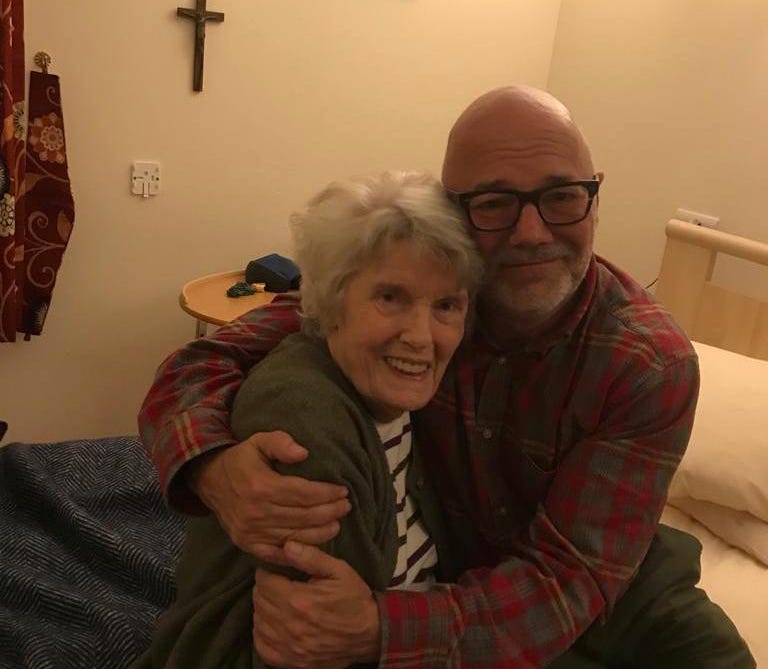

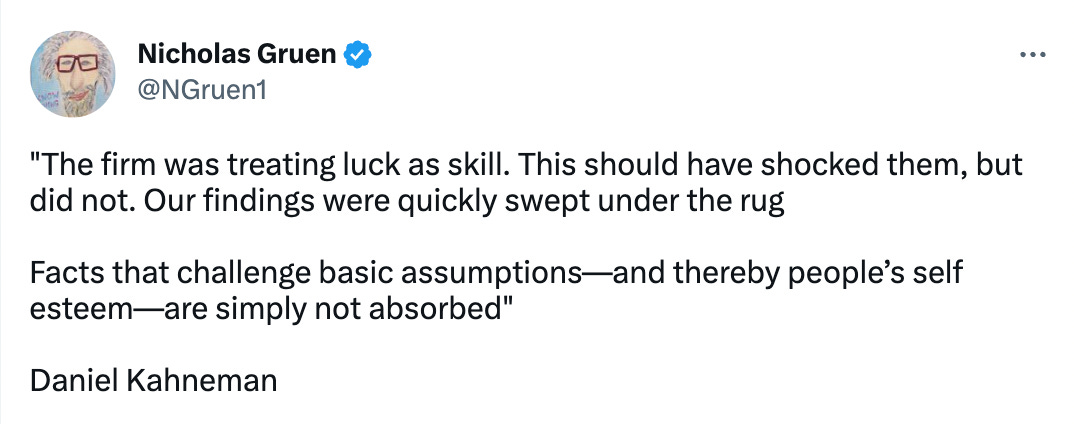
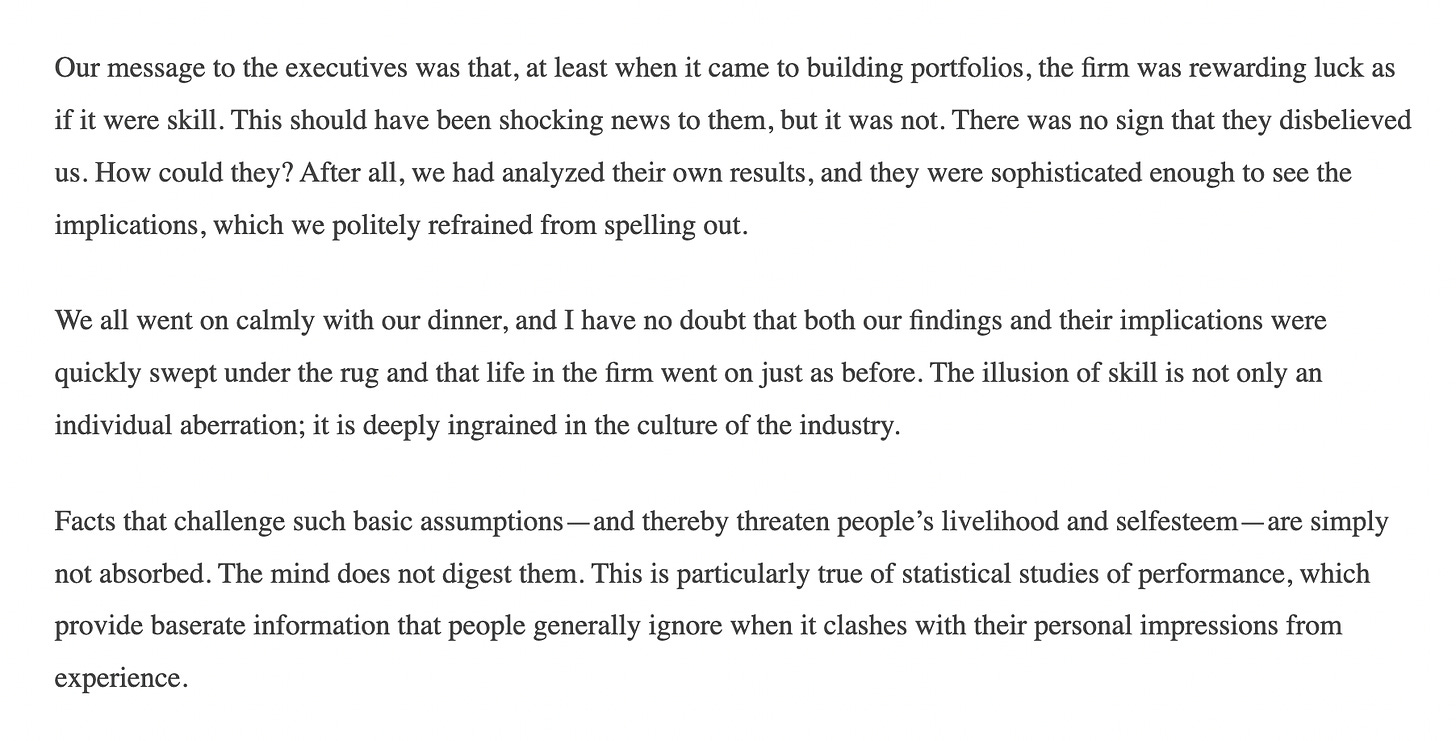








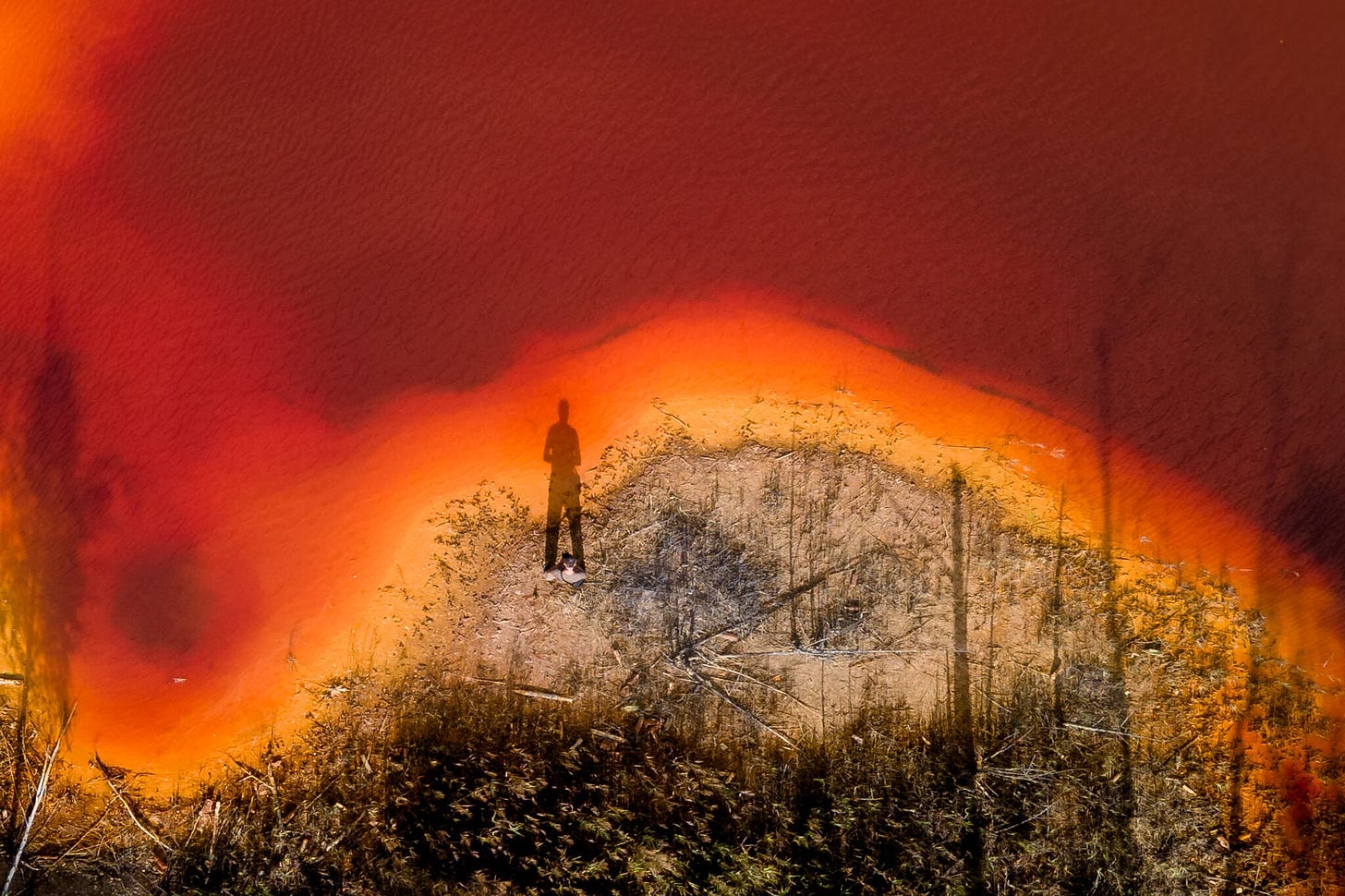




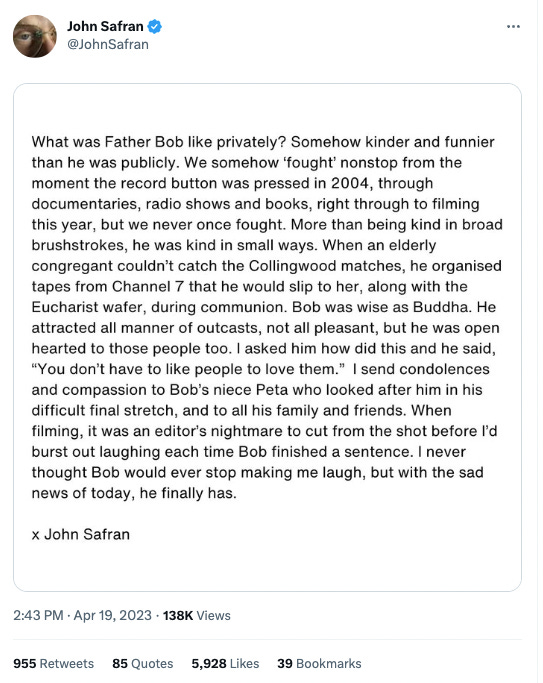





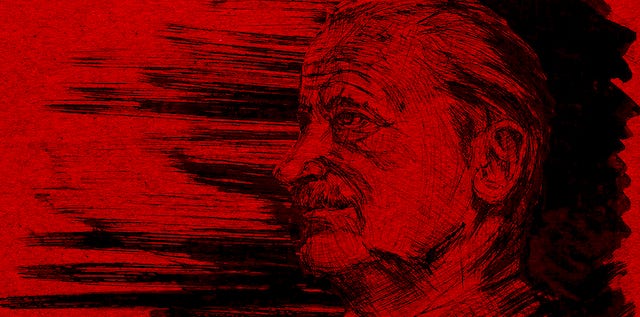

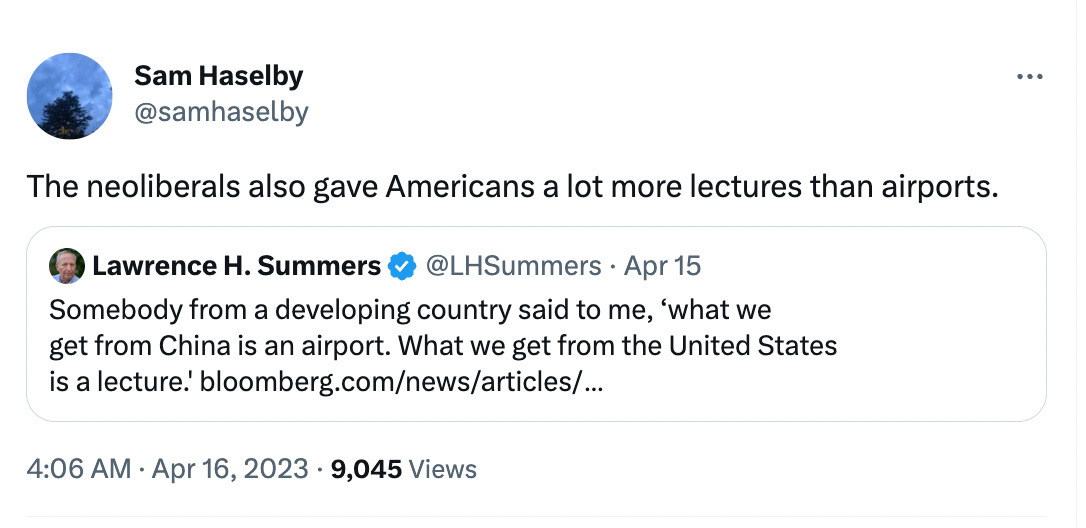
“…. a part of the “foreign policy establishment… has embarked on an ideological quest to divide the world between democracies and autocracies….”.
This should be “says it has embarked”.
Because in fact this establishment eg Nuland and co are straight up CIA, not diplomats or bureaucrats. They are actually members of the military, running US foreign policy in a one-way-ticket to perpetual war. Nobody voted for these people. The American public hasn’t voted for them. Nor has the public in Europe voted for them, but is being forced into war by them.
Nobody has voted for Jerome Powell either, while he deliberately implements policies to impoverish workers in the US and abroad.
They are all forcing huge sections of the world into war, precarious and poverty. And no one ever voted for them or their policies.
That’s dictatorship.
So much for the narrative of “democracies”, then.